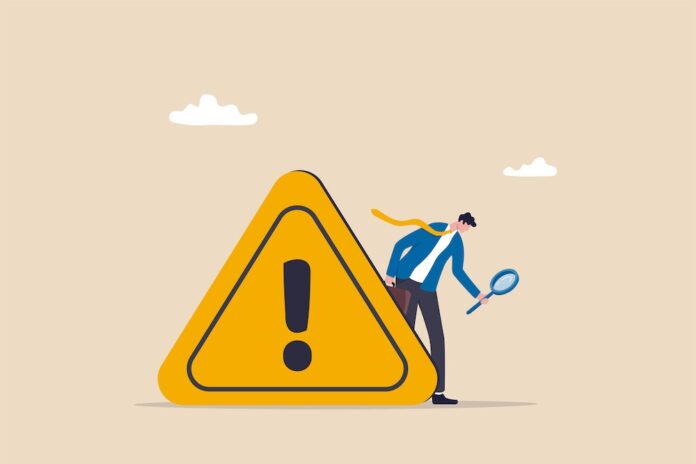An organization is a group of individuals who have a common aim and work together despite their race, religion, and cultural differences. The group comprises individuals from all walks of life, all faiths, and all corners of the globe who come together to accomplish a shared purpose. There are certain tasks and jobs that each employee is expected to do for the company.
Employees are a company’s most valuable resource since they are the business’s backbone. There are several responsibilities on the employee’s and the employer’s end. The failure to clearly define positions is a common source of friction in businesses.
Supervisors, workers, and managers need to have their specific tasks spelled out to know who is responsible for what. According to Shapiro Law Group, one of the best employment lawyers in Massachusetts, “Workers are a company’s most valuable resource. Therefore, they must understand what’s expected of them.”
There are two broad types of obligations and functions. Workers in the first category, the technical expert, are relied upon to do complex tasks. Second, the social function of the employee is significant since it factors into the management procedure. Here, we’ll talk about what you can expect from your job and how you can help the company succeed.
Well-Being Of All Parties Involved, Including Workers

All employers must ensure their workers’ health, safety, and welfare, whether they are full-time, part-time, casual, or temporary employees. They must also train, oversee, contract, or employ outside help. Employers are responsible for making and keeping the workplace risk-free for employees. This responsibility entails conducting routine checks and inspections of the workplace and facilities to spot any dangers as soon as they arise. To ensure workers are prepared for any emergency, providing them with the proper safety training is crucial.
As part of this role, you’ll need to train your staff on what to do in an emergency to respond appropriately and quickly under pressure. Employers that do these things provide a workplace that is safe by legal standards and beneficial to their workers’ health.
Creating a Risk-Free Workplace

The employer must ensure that all aspects of the workplace, including the physical setting, the tools, and the machinery, are safe for workers to utilize. These instruments need regular upkeep through inspections and fixes to continue functioning properly. The place of employment should be free from health and safety hazards. Workplace comfort refers to factors including adequate airflow, lighting, and temperature.
Accommodations provided by employers must satisfy basic health and safety standards. By addressing these concerns, employers may foster an environment encouraging employee health and productivity. Workers can get their jobs done without endangering themselves physically or mentally.
Reprimands and Complaints
Employees have the right to be informed of their rights in the event of formal disciplinary action or the filing of complaints by their employers. An employee has the right to have a coworker present at disciplinary sessions or when filing a formal complaint. They must also be allowed to file an appeal against a ruling. An employee can file an appeal beginning on the first day of work.
Scheduled Time Off
The standard workday length in the business world is between 8 and 10.5 hours. The schedule might be fluid or set in shifts. Overtime is defined as any labor over a certain number of hours. The worker will be compensated more for their overtime.
A worker is permitted time off after a full day’s labor. An employee can seek premium compensation from his employer if his presence is essential for completing a specific project.
Access to Company Resources

The organization must provide all essential materials. The employer is responsible for providing and maintaining work equipment, such as computers, notepads, and phones. Human Resources is in charge of such matters. Once the worker receives all the necessary materials, he can begin the project. No office duties should need the employee to use his equipment.
Holiday Employment
Workers should also be compensated for time worked on holidays and weekends. Workers have the right not to be required to come in on holidays.
How productively and skillfully workers carry out their duties is directly proportional to their roles and responsibilities. In reality, the employee’s duties are to uphold the terms of the employment agreement, comply with reasonable instructions, cooperate with the employer, and remain true to the company. They must also protect the company’s proprietary information and pay their employer for any damages caused.
Required Advance Notice Times
The phrase “minimum notice” refers to the minimum of time you or your employer must offer one another before terminating your employment. Both of these should be included in your contract.
The minimum statutory standards for notice periods will apply even if your employment contract calls for a shorter notice period. You are entitled to a longer notice period if your employment contract requires a longer notice period.
Mandatory Insurance for Employer Negligence

Every business must have the obligatory coverage of Employer Liability Insurance. It’s a safety net for workers if they become sick or injured. Both the company and the employee are protected against financial loss thanks to the insurance.
The insurance certificate should be posted at the workplace for everyone to see. It’s mandatory by law and provides workers with financial security for an on-the-job injury or sickness. It’s useful for fostering a welcoming and trustworthy environment at work.
Competing With Your Group
It’s common knowledge that everyone in an organization contributes to the success of the whole. It is their job to ensure the team’s success. Employees are expected to participate actively in team activities such as planning, problem-solving, and decision-making. Employees can do more in less time when jobs are delegated to them.
Services for the Needy
It is the responsibility of employers to ensure their staff has access to a minimum set of welfare benefits that will ensure their health and safety on the job. They have flush toilets with soap and water and a potable water supply. Employees may take care of their personal hygiene needs while at work, which is essential for their health and comfort.
More productive and healthier employees may result from the reduced transmission of illness made possible by these amenities. These spaces must be maintained to a high degree of cleanliness, quality, and accessibility to respect workers’ dignity and advance their well-being.
Employee Orientation and Training

New hires need induction training to ensure they have the background and skills they need to accomplish their jobs effectively and safely. The employer should provide training of this kind. All the necessary tools, supplies, and information for doing the task properly should be provided.
The instruction should not stop at a simple primer. Advice and instructions on how to avoid common pitfalls in the workplace should be included. Companies that provide induction training to their staff members tend to have more competent and safe workers. As a bonus, they help maintain an educated and upbeat work environment.









